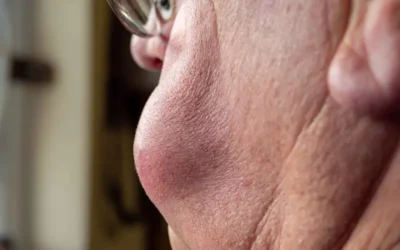Urinalysis is the analysis of urine for the diagnosis and monitoring of several medical conditions such as urinary tract infections, bleeding in the urinary system, or kidney or liver disease as well as diabetes, some diseases of the blood, and bladder stone. Medical billing and coding companies assist providers in reporting pathology procedures related to analyses of urine specimens in accordance with Medicare, Medicaid, and other federally-funded payer requirements. Recent reports on the misuse of urine testing for the presence of drugs of abuse have led to increased scrutiny of pain management billing. Providers should take care to order urine lab testing only when it is medically necessary and provides a corresponding benefit to the care and treatment of the patient.
Urinalysis CPT Codes
Urinalysis methods used by diagnostic laboratories include visual examination, reagent strip screening, refractometry for specific gravity, and microscopic inspection of centrifuged sediment. The CPT codes used to report urinalysis are as follows:
- 81000 Urinalysis, by dip stick or tablet reagent for bilirubin, glucose, hemoglobin, ketones, leukocytes, nitrite, ph, protein, specific gravity, urobilinogen, any number of these constituents; non-automated, with microscopy
- 81001 Urinalysis, by dip stick or tablet reagent for bilirubin, glucose, hemoglobin, ketones, leukocytes, nitrite, pH, protein, specific gravity, urobilinogen, any number of these constituents; automated, with microscopy
- 81002 Urinalysis, by dip stick or tablet reagent for bilirubin, glucose, hemoglobin, ketones, leukocytes, nitrite, pH, protein, specific gravity, urobilinogen, any number of these constituents; non-automated, without microscopy
- 81003 Urinalysis, by dip stick or tablet reagent for bilirubin, glucose, hemoglobin, ketones, leukocytes, nitrite, pH, protein, specific gravity, urobilinogen, any number of these constituents; automated, without microscopy
- 81005 Urinalysis, qualitative or semi-quantitative, except immunoassays; this code describes a test that is different from 81002 or 81003 a colorimetric analyzer is used rather than a dipstick, and because the test results may be semiquantitative
- 81007 Urinalysis; bacteriuria screen, except by culture or dipstick
- 81015 Urinalysis, microscopic only
- 81025 Urine pregnancy test, by visual color comparison methods
- 81050 Volume measurement for timed collection of urine, each
Urine Tests using other Methods
The following CPT codes are used when urine tests are performed using other methods:
For culture
- 87086 – Culture, bacterial; quantitative colony count, urine
- 87088 – Culture, bacterial; with isolation and presumptive identification of each isolate, urine
For dip stick
- 81000 Urinalysis, by dip stick or tablet reagent for bilirubin, glucose, hemoglobin, ketones, leukocytes, nitrite, pH, protein, specific gravity, urobilinogen, any number of these constituents; non-automated, with microscopy
- 81002 Urinalysis, by dip stick or tablet reagent for bilirubin, glucose, hemoglobin, ketones, leukocytes, nitrite, pH, protein, specific gravity, urobilinogen, any number of these constituents; non-automated, without microscopy
Medical Necessity
Medicare provides coverage for urinalysis when the clinical documentation provides clear evidence that the patient has signs or symptoms of a kidney/urinary tract disorder or a condition, which is known to affect the kidney/urinary tract. Noridan states that urinalysis may be considered medically reasonable and necessary if the patient:
- Has a symptom suggestive of possible kidney/urinary tract disorder, such as dysuria, frequency, hesitancy, nocturia, urgency, flank pain, pelvic pain, abdominal pain, etc.
- Has Signs of kidney/urinary tract disorder such as hematuria, discoloration of urine, edema and malodorous urine
- Has been recently treated or is under treatment for urinary tract disorder and follow-up urinalysis is necessary to evaluate the patient
- Has a condition that can affect the kidneys or urinary tract, such as hypertension, diabetes mellitus, known renal disease, collagen vascular disease
- Is undergoing treatment with medication known to potentially adversely affect the kidneys such as gold therapy
- Has sustained trauma suggestive of possible kidney/urinary tract injury
- has unexplained fever
- Is pregnant and urinalysis is performed as part of standard prenatal care
- Is pregnant and urinalysis is performed to screen for diabetic pre-eclampsia
Urinalysis may also be covered as part of the evaluation of a dehydrated patient.
Urinalysis Billing and Coding Guidelines
- All services billed to Medicare must be documented as billed and be medically necessary.
- If the lab that performs the test operates under a Clinical Laboratory Improvement Amendments (CLIA) certificate of waiver, most urinalysis tests should be reported with modifier QW (CLIA waived test). Example: If urinalysis for common constituents is performed using the automated Bayer Clinitek Status Urine Chemistry Analyzer, the service should be reported using CPT 81003-QW
- CPT codes 81002, 81025, 82270, 82272, 82962, 83026, 84830, 85013, and 85651 do not require a QW modifier to be recognized as a waived test.
- CPT-4 codes 81007, 81025 and 81050 are not split-billable and must not be billed with modifiers 26, TC or 99.
- Modifier 91 should be used to report repeated urinalysis procedures which are medically necessary.
- CPT 81015 should not be combined with 81002 or 81003.
- CPT-4 code 81025 (urine pregnancy test, by visual color comparison methods) is used when billing for routine pregnancy testing
- Emblem Health uses different types of commercially available claims review software to support correct coding of claims. Their 2015 payment policies support bundling CPT code 81002 and CPT code 81003 (Urinalysis by dip stick or tablet reagent) when reported with an Evaluation and Management (E/M) service (e.g., CPT codes 99201-99205, 99211-99215 and 99381-99397). Emblem Health states: “CPT codes 81002 and 81003 will not be separately reimbursed unless Modifier 25 is appended to the E/M service indicating that a diagnostic, non-screening, urinalysis was performed”.
- Based on ACOG coding guidelines, United Healthcare considers CPT codes 81000 and 81002 as included in the global antepartum or global obstetrical(OB) service when submitted with an OB diagnosis code in an office setting. The services in the global obstetrical package related to both vaginal and Caesarean delivery that will not be reimbursed separately when performed by the OB provider are: Pregnancy test (CPT codes 81025, 84702, 84703).
Guidelines on Component Billing
Medi-Cal provides the following guidelines on component billing of urinalysis:
- Individual components of a urinalysis (81002, 81003, 81005 and 81015) will not be reimbursed separately (unbundling) if a complete urinalysis (81000 or 81001) has been previously paid to the same provider, for the same patient and date of service.
- If complete test code 81000 or 81001 has been previously reimbursed to the same provider, for the same patient and date of service, claims for component test codes 81002, 81003, 81005 or 81015 will be denied.
- If component code 81002, 81003, 81005 or 81015 has been previously paid, the reimbursement for complete test code 81000 or 81001 is reduced by the amount previously paid(or denied if total previous reimbursement equals reimbursement for complete test codes 81000 or 81001).
- The total reimbursement for any combination of codes 81002, 81003, 81005 or 81015, when billed by the same provider, for the same recipient and date of service, will not exceed the allowable reimbursement for complete test codes 81000 or 81001.
- If code 81000 has been previously reimbursed to the same provider,for the same recipient and date of service, claims for code 81001 will be denied since a complete urinalysis has been reimbursed and vice versa.
Documentation Requirements
The ordering/referring physician/nonphysician practitioner should maintain proper medical documentation which indicates the medical necessity for performing the test such as office/progress notes and lab results.
If the service is provided by an entity other than the ordering/referring physician/nonphysician practitioner, this entity should maintain documentation of test results and interpretation, along with copies of the ordering/referring physician/nonphysician practitioner’s order for the tests. The physician/nonphysician practitioner must document the clinical indication/medical necessity in the order for the test.
With increased scrutiny of urinalysis claims, partnering with a responsible medical billing and coding service provider is the ideal strategy to report services correctly.



